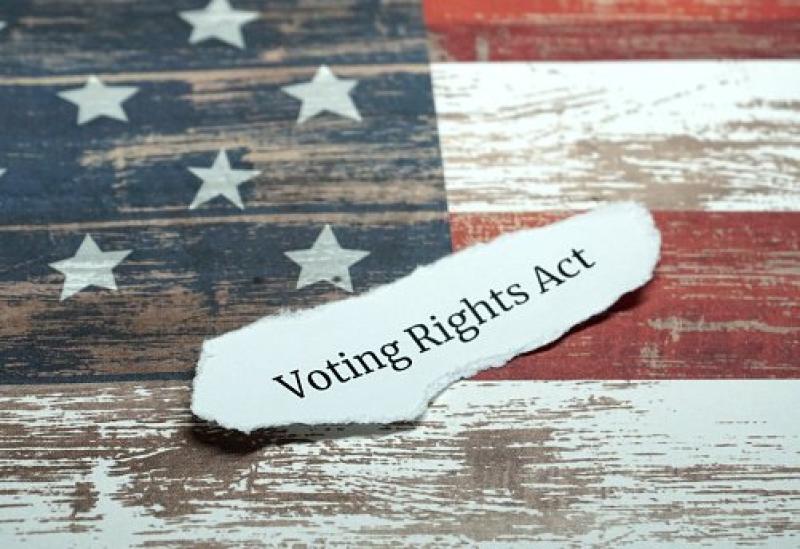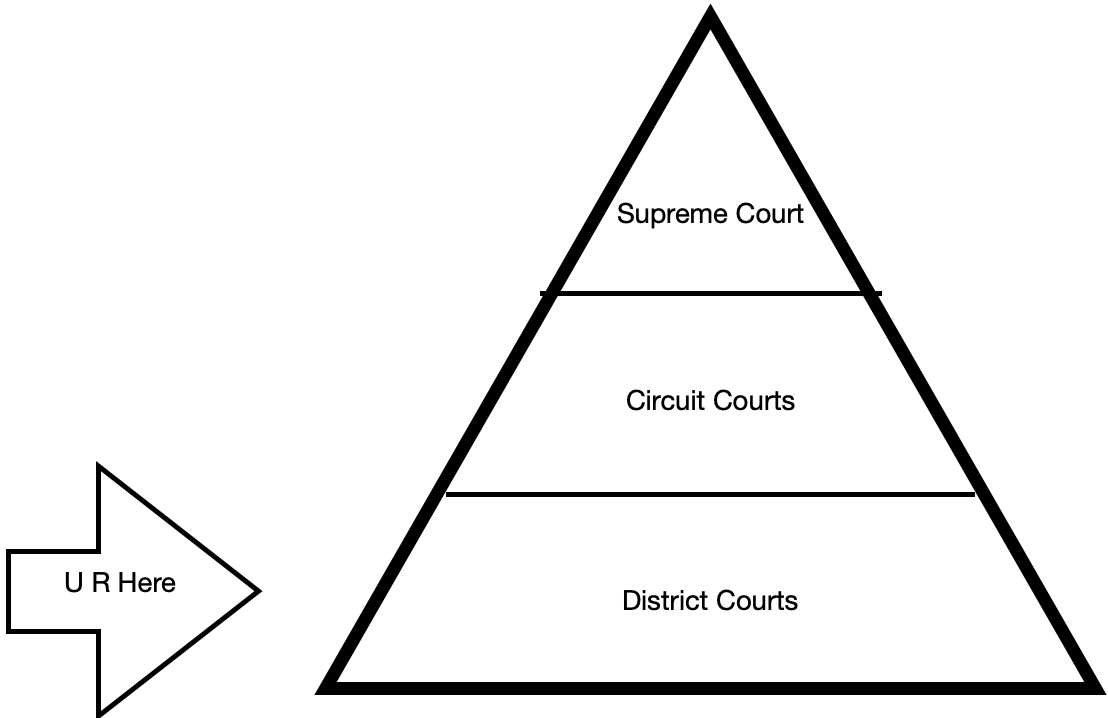Trump Judge So Excited To Blow Up Voting Rights He LARPs As Supreme Court Justice



That might not be clear enough. Let’s try another one that gives Rudofsky more guidance:

At the bottom. That means you get to write self-indulgent opinions about how you “regret being bound by [insert the legacy of the Civil Rights Movement here], but until courts reverse this precedent….” He’s correct that he’s not the “last word” on the subject. His problem is thinking he’s even a speaker as opposed to the messenger.

Know your role.
ByJoe PatriceonFebruary 18, 2022 at 3:45 PMFebruary 18, 2022 at 2:52 PM
In a 42-page opinion issued yesterday, Judge Lee Rudofsky of the Eastern District of Arkansas decided that Section 2 of the Voting Rights Act — also known as the barely remaining thread of the statute designed to end Jim Crow voting laws — can only support a challenge if the Justice Department brings the case.
The problem with this opinion is that the United States Supreme Court already decided this question in 1969 when it wrote in Allen v. State Board of Elections that "The achievement of the Act's laudable goal could be severely hampered, however, if each citizen were required to depend solely on litigation instituted at the discretion of the Attorney General."
But Judge Rudofsky — a trial judge — has no time for these "Supreme Court" folks!
There's a lot that can be said of the substance this opinion — here, check out Millhiser on that — but focus on this specific paragraph, highlighted by Slate's Mark Joseph Stern:
Second, the private-right-of-action question is an important one. This Court will not be the last word on it. And this Court is thankful for that. Judges should not be allergic to acknowledging that any one of our legal conclusions might be wrong. Judges are just humans in robes. We try to have as high a batting average as possible, but no one can get it right all of the time. All a judge can do is try his or her best to fairly, honestly, and faithfully interpret and apply the statute at issue and the relevant caselaw. If the strength of Plaintiffs' private-right-of-action arguments is really as overwhelming as they suggest it is, then the Eighth Circuit or the Supreme Court will overrule today's decision. And even if the Eighth Circuit or Supreme Court affirm today's ruling that a private right of action cannot be implied to enforce § 2 of the Voting Rights Act, Congress has the power to enact an express private right of action in the Voting Rights Act if it so chooses.
Putting aside everything about the gravity of the subject matter, how in the ever living fuck does this work? "If the strength of Plaintiffs' private-right-of-action arguments is really as overwhelming as they suggest it is, then the Eighth Circuit or the Supreme Court will overrule today's decision."
That's the OPPOSITE of how this works.
Trial courts apply law given to them by appellate courts. There's actually a reason we operate this way! The legal system functions on predictability. If basic civil rights aren't your bag — and some of you are out there, unfortunately — consider the economy. If every trial judge could change the law on a whim, then business would be unable to proceed with any confidence. Rules would be in constant flux. Appellate courts, which are fewer and govern larger areas, can change law and provide some predictability to courts below. And the Supreme Court, when it chooses to act, can set the standard for the whole country.
And because the Supreme Court cannot hear every case, we entrust the trial courts to enact precedents AS THEY EXIST and put the onus on the appellate system to change that as necessary.
Actually, let's try a visual aide. This can fill in for Rudofsky's understanding of federal courts:
That might not be clear enough. Let's try another one that gives Rudofsky more guidance:
At the bottom. That means you get to write self-indulgent opinions about how you "regret being bound by [insert the legacy of the Civil Rights Movement here], but until courts reverse this precedent…." He's correct that he's not the "last word" on the subject. His problem is thinking he's even a speaker as opposed to the messenger.
In the world Rudofsky's talking about, the presumption goes to unsettling the established law — literally shooting first and asking questions later. Which is fashionable at the Supreme Court these days, but that's not his call.
To quote The Untouchables:
What is that which gives me joy? Baseball! A man stands alone at the plate. This is the time for what? For individual achievement. There he stands alone. But in the field, what? Part of a team.
Functionally gutting the Voting Rights Act isn't your job, pal.
Just yesterday we wrote about a very conservative Reagan appointee complaining about zealous clerks undermining the rule of law. That this opinion comes from a member of the FedSoc-to-Bench pipeline on blast in that dissent isn't a surprise.
Realistically, Judge Rudofsky has another 30+ years ahead of him as a federal judge. With luck, maybe he can work his way up the movement's cursus honorum and get a crack at the really plum assignments in the ongoing effort to dismantle the last 80 years or so of judicial precedent.
But he's not an appellate judge yet! Everyone has to respect their place on the team.
Joe Patrice is a senior editor at Above the Law and co-host of Thinking Like A Lawyer. Feel free to email any tips, questions, or comments. Follow him on Twitter if you're interested in law, politics, and a healthy dose of college sports news. Joe also serves as a Managing Director at RPN Executive Search.
Topics
Courts, Election Law, Lee Rudofsky, Voting Rights Act





Trial courts do not make law. But as a good attorney friend once told me, "Someone has to be last in class."
A lot of District Judges seem to forget that their jurisdiction is over their district - only.
Guess he didn't get the memo.
So it would seem.
His district is in Arkansas, don't need to say more than that.
I had the same thought Kavika.
Hate to keep picking on AL and AR but it's almost too easy.
Yup, like fish in a barrel.